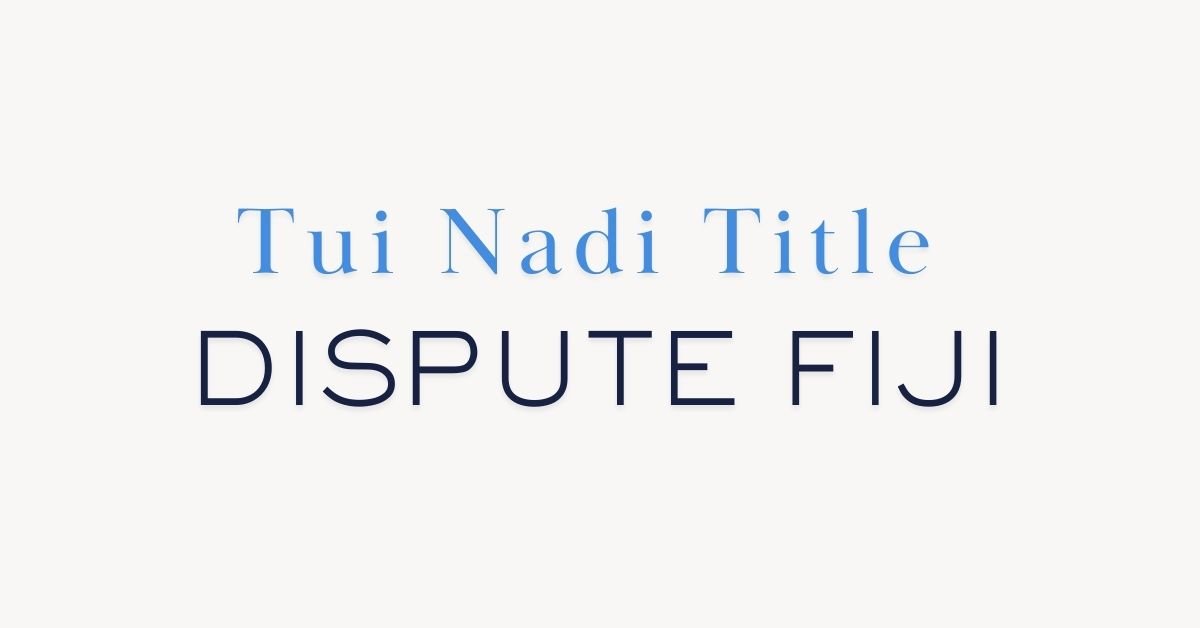The Tui Nadi title, a paramount chieftaincy in Fiji’s Nadi region, has experienced prolonged disputes over rightful succession, impacting local leadership and community cohesion.
Early Disputes and Legal Interventions
The contention over the Tui Nadi title dates back several decades. Notably, in the early 2000s, the Native Lands Trust Board (NLTB) froze lease monies due to the Tui Nadi titleholder amidst disputes, affecting revenues from tourism developments and sugar cane leases in the Nadi area.
Recent Developments
In 2013, Ratu Sailosi Dawai was confirmed as the Tui Nadi by the iTaukei Land Appeal Tribunal, resolving an 18-year dispute. However, disputes resurfaced in 2017 when Ratu Vuniyani Navuniuci Dawai was appointed as Tui Nadi, a decision contested by Ratu Kaliova Dawai, leading to legal challenges. The High Court in Lautoka later permitted Ratu Kaliova to seek a judicial review of the appointment.
Current Status
As of October 2021, the Tui Nadi title dispute remained unresolved, with legal proceedings ongoing. The passing of claimant Ratu Kaliova Dawai in September 2020 added complexity to the succession issue. The prolonged dispute underscores the challenges in traditional leadership transitions within Fiji’s chiefly system.
Implications for the Community
The Tui Nadi title dispute has significant implications for the Nadi community, affecting the distribution of lease revenues and local governance. The uncertainty hampers development initiatives and community projects reliant on stable leadership. Resolving the dispute is crucial for restoring traditional leadership structures and ensuring equitable resource management in the region.
The Tui Nadi title dispute exemplifies the complexities inherent in Fiji’s traditional chiefly systems, highlighting the need for clear succession protocols to maintain community stability and development.







